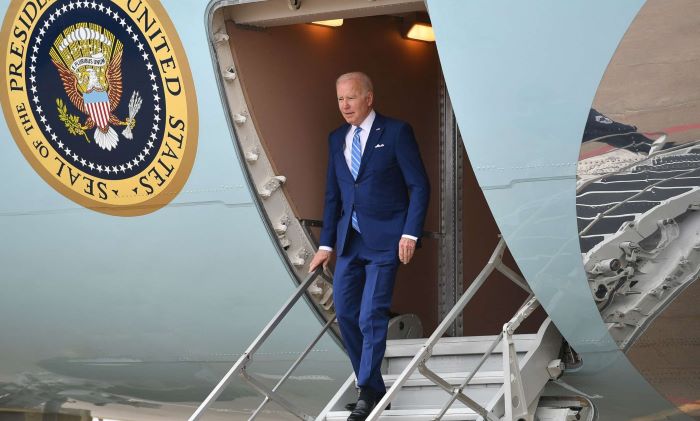In a surprising move, President Joe Biden opts for transparency as he unveils his strategy for a series of strikes against an Iran-backed group responsible for the recent killing of three US soldiers. This decision, while bold, draws criticism for potentially compromising the element of surprise, a crucial factor in successful military operations.
Washington’s Buzz
The anticipation of imminent strikes dominates conversations in Washington. This anticipation has gained momentum four days after President Biden issued a stern warning that the US would retaliate at a time and place of its choosing. Insights from the White House suggest that the intended targets will be sites affiliated with Tehran. These sites are located in Syria and Iraq, and the strategy involves carefully avoiding direct strikes on Iranian territory. Additionally, speculation is rife about a potential strike on the Iranian warship IRIS Alborz in the Red Sea.
Open Signaling and Clear Messages
This open signaling aligns with President Biden’s objective. The goal is to send a clear message to Tehran. This message accuses the Iranian government of funding groups. These groups are responsible for a string of attacks on American bases and personnel in the region.
Simultaneously, according to a Wall Street Journal report, the administration seeks to prevent the escalation of a conflict that originated with Hamas’ attack on Israel in early October, followed by a powerful military response in the Gaza Strip.
Critics Question Transparency
According to The Washington Post, critics, including Steven Cook from the Council on Foreign Relations, have questioned the wisdom of the administration’s transparency. They deem it unusual for successful military operations. Cook remarked, “It’s quite odd that the administration has been so open about saying what they’re going to do, how they’re going to do it.”
Defense Secretary’s Assurance
Defense Secretary Lloyd Austin addressed these concerns during a press conference. He refused to speculate on the impact of the disclosed information on Iranian advisers in Syria. Emphasizing a multi-tiered response, Austin expressed the administration’s commitment.
The commitment is to holding accountable those responsible for the attacks while avoiding a broader conflict. He delivered a rare moment of muscle-flexing, asserting, “They have a lot of capability. I have a lot more. We’re going to do what’s necessary to protect our troops and our interests.”
Navigating Diplomacy and Negotiations
The administration’s careful signaling also takes into account ongoing negotiations between the US, Qatar, Egypt, Israel, and Hamas to secure a ceasefire and the release of hostages. Success in these negotiations could potentially ease regional tensions and dissuade Iran’s proxies from launching further attacks on US forces.
Political Pressures in an Election Year
Adding a political dimension to the scenario is the upcoming election year. Republicans are exerting pressure on President Biden to take decisive action, including direct attacks on Iranian assets or territory. The President’s recent visit to Michigan had a specific aim: to secure union support in a key battleground. This region is notable for having a significant Muslim-American and Arab-American population. Among these communities, sentiments against Israel’s Gaza operations are stronger.
Anticipated Strikes and Diplomatic Considerations
Senator Chris Coons anticipates forceful strikes against Iranian proxies, deeming them proportional and justified. Meanwhile, CBS News reported that the US has approved plans for multiple-day strikes in Iraq and Syria, including targets involving Iranian personnel and facilities.
The National Security Council spokesman, John Kirby, criticized public speculation about future military operations, deeming it highly irresponsible. The delicate balance between transparency, strategic messaging, and national security concerns continues to shape the unfolding narrative. This pertains to the geopolitical development at hand.

